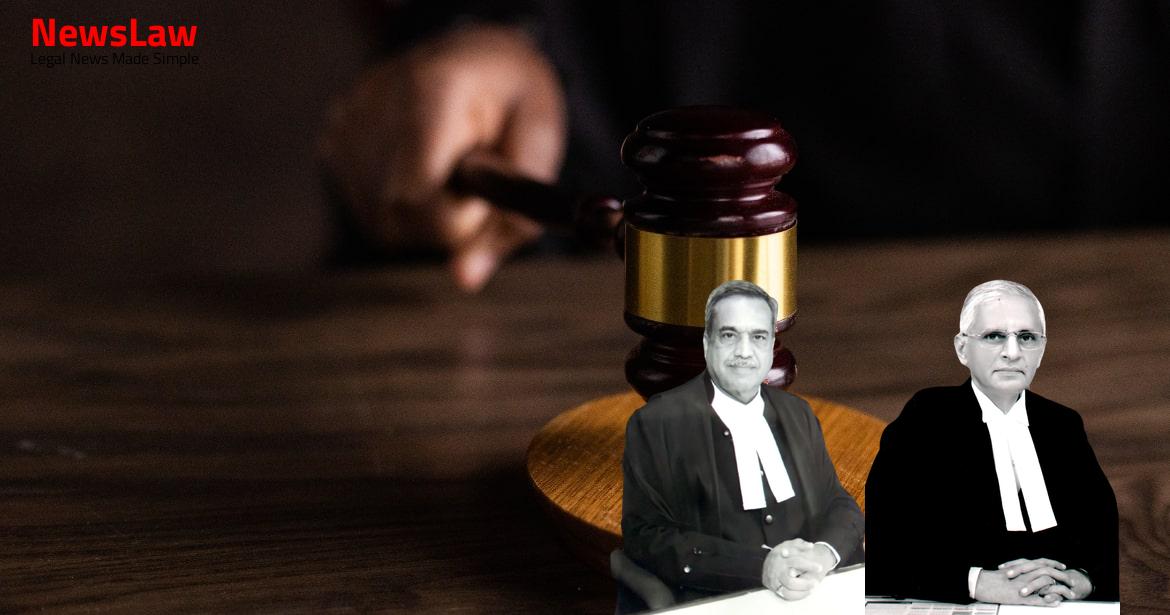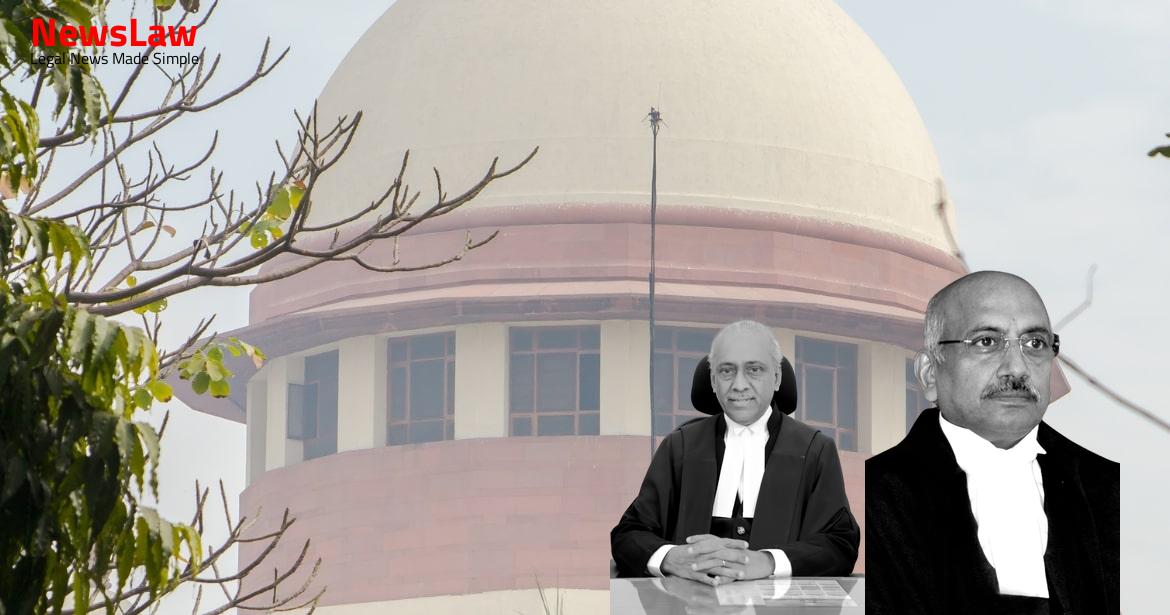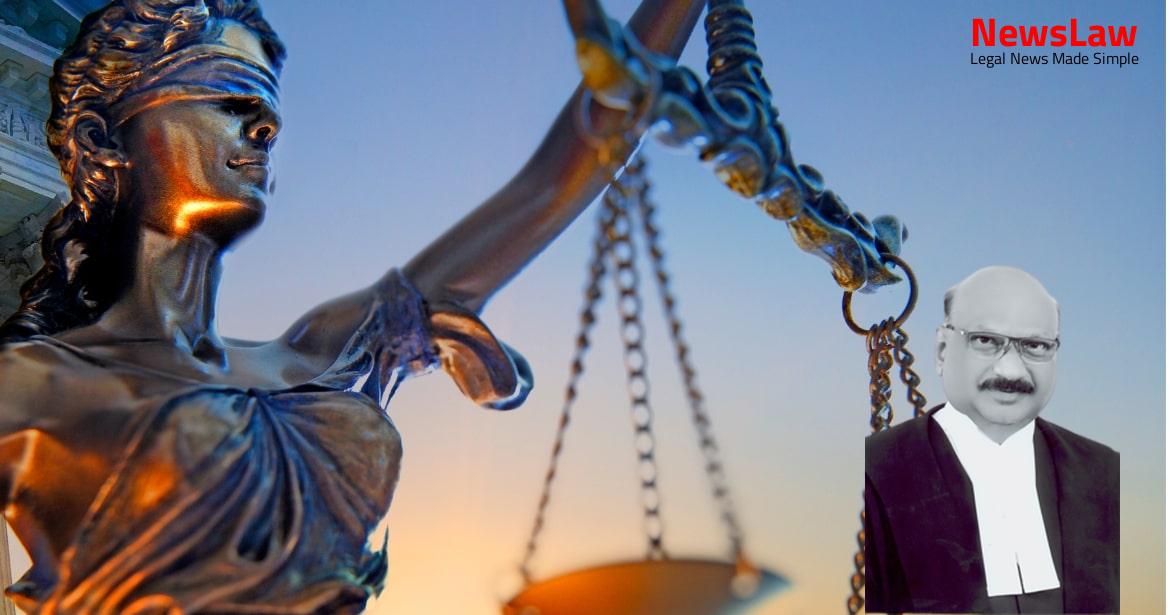In a recent legal case, the court delved into the interpretation of statutory limitation under Section 263(2) of the Income Tax Act. The focus was on whether the date of making the order or the date of receipt by the assessee is pivotal in determining the period of limitation. The court meticulously analyzed the language of the statute, emphasizing the importance of adhering strictly to the prescribed time limit. This case highlights the significance of precise legal interpretation in ensuring the fair and just application of tax laws.
Facts
- The revenue is aggrieved and dissatisfied with the judgment and order dated 03.07.2019 passed by the High Court of Judicature at Madras
- The High Court dismissed the appeal preferred by the revenue and confirmed the order dated 04.04.2013 by the learned ITAT
- The High Court held that the date of receipt of the order by the assessee is relevant for determining the period of limitation under Section 263(2) of the Act
- The assessee filed an appeal before the ITAT on 29.11.2012 after receiving a notice under Section 143(2) and 263 from the Assessing Officer.
- The AO passed an assessment order for AY 2008-09 on 30.12.2010, and initiated revision proceedings under Section 263 on 01.02.2012.
- The assessee challenged the revision order before the ITAT, claiming it was beyond the limitation period under Section 263(2).
- The ITAT accepted the assessee’s contention on 04.04.2013 and allowed the appeal, stating the revision order was passed beyond the limitation period.
- The Commissioner’s order under Section 263 on 26.03.2012 found the AO failed to make necessary inquiries for a correct assessment.
- The assessment order under Section 143(3) was deemed erroneous and prejudicial to revenue, leading to a direction for further inquiries by the AO.
Also Read: Legal Analysis on Conviction Based on Sole Testimony of Prosecutrix
Issue
- The High Court and the ITAT examined whether the order passed by the Commissioner under Section 263 was within the period of limitation provided under Section 263(2) of the IT Act.
- The High Court upheld the ITAT’s decision that the order passed by the Commissioner was indeed barred by limitation.
- The core issue was whether the relevant date for considering the period of limitation under Section 263(2) was the date on which the order was received by the assessee.
- The appeal by the revenue, challenging the setting aside of the revisional order by the ITAT, centered on the question of limitation as per Section 263(2) of the Act.
Also Read: Legal Analysis on Concurrent Sentences in Drug Trafficking Cases
Arguments
- The revenue – appellant is challenging the High Court’s ruling that the revision order dated 26.03.2012 under Section 263 was barred by limitation.
- The ASG argues that both the High Court and the ITAT misinterpreted Section 263, specifically sub-section (2) of the Act.
- The ASG points out that according to Section 263(2), the order under sub-section (1) must not be made after two years from the end of the relevant financial year, which in this case is 31.03.2012.
- The High Court incorrectly held that the order served on the assessee on 29.11.2012 was beyond the two-year limitation period.
- Shri R. Sivaraman, representing the respondent, pointed out that the order under Section 263 was acted upon before being set aside by the ITAT.
- A new assessment order has been issued by the Assessing Officer after the ITAT decision.
- It is argued that the appeal’s issue has become moot due to these developments.
Also Read: Legal Analysis of Marriage Validity Dispute
Analysis
- The provision of the statute is to be read as it is without adding or removing anything.
- The relevant last date for passing the order under Section 263 is 31.03.2012 for an assessment in the financial year 2008-09.
- The word ‘made’ and not ‘received’ is crucial in determining the time limit under Section 263 (2).
- The High Court misinterpreted the provision of subsection (2) of Section 263 by considering the receipt date.
- The term ‘dispatch’ is not mentioned in Section 263 (2), emphasizing the importance of ‘making’ the order within the prescribed time limit.
- Receipt of the order by the assessee is irrelevant for calculating the time limit under Section 263.
- In this case, the order was made by the Commissioner on 26.03.2012, which complies with the limitation period under Section 263 (2).
- The issue raised in the appeal being academic does not detract from the importance of deciding the legal question raised.
- Interpreting the ‘making’ of the order as ‘receipt’ would violate the clear language of Section 263 (2).
- The relevant section for consideration is Section 263 (2) of the Income Tax Act.
- Section 263 (2) states that no order shall be made under sub-section (1) after two years from the end of the financial year in which the order sought to be revised was passed.
- The High Court has erred in holding that the order under Section 263 of the Act passed by the learned Commissioner was barred by the period of limitation.
- The order passed by the learned Commissioner under Section 263 of the Income Tax Act was within the period of limitation prescribed under sub-section (2) of Section 263 of the Act.
- The question of law framed is answered in favor of the revenue-appellant and against the assessee-respondent.
Decision
- Present appeal allowed
- No costs to be incurred
Case Title: THE COMMISSIONER OF INCOME TAX CHENNAI Vs. MOHAMMED MEERAN SHAHUL HAMEED (2021 INSC 630)
Case Number: C.A. No.-006204-006204 / 2021



